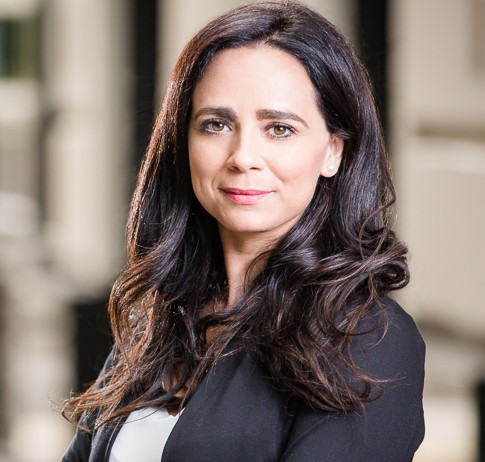Article
Art Restitution: ADR mechanisms to solve Nazi-looted art cases
17 July 2023 | 5 minute read
Although the world has tried to move forward after the horrors of World War Two ("WW2"), there are still events connected to the Nazi era that make the headlines of major international newspapers. That is often the case with artefacts that the Nazis confiscated between 1933 and 1945 (so-called "Nazi-looted art").
At the end of 2022, the heirs of a Jewish collector filed a lawsuit in the US District Court for Northern California against the Metropolitan Museum of Art in New York and the Basil & Elise Goulandris Foundation to secure the return or compensation of a Van Gogh painting which the claimants alleged was seized by the Nazis as their relative fled Germany in 19361. More recently, in March 2023, the UK Spoliation Advisory Panel recommended the Fitzwilliam Museum in Cambridge restitute Gustave Courbert's painting La Ronde Enfantine to the heirs of a Jewish man2.
These cases show that the restitution of much Nazi-looted art is still unsolved. Arbitration may be a useful mechanism to solve cases involving Nazi-looted art.
The 1998 Washington Principles
It has been estimated that the Nazis stole about 600,000 artworks from Jewish communities, collectors, museums and those living in the territories that they unlawfully occupied during WW2. However, there are around 100,000 art pieces that are displaced and still missing today. It is therefore not surprising that artefacts may suddenly appear on the open market, such as at auctions, in reputed galleries or museums all over the world.
It is in this context that in December 1998 the Washington Principles were released during the Washington Conference on Holocaust-Era Assets. Their key features are as follows:
(a) They are non-binding "to assist in resolving issues relating to Nazi-confiscated art".
(b) They set out the basis to try to identify Nazi looted art, even art that "had been confiscated by the Nazis and not subsequently restituted". To achieve greater transparency, the 1998 Washington Principles called on States to open and make records and archives accessible to researchers as well as to make available personnel to facilitate the identification of Nazi-confiscated art.
(c) They encourage the publicity "of art that is found to have been confiscated", establishing "a central registry of such information".
(d) They provide a certain level of flexibility to overcome when "unavoidable gaps or ambiguities in the provenance in light of the passage of time and the circumstances of the Holocaust era."
(e) They provide for a "just and fair solution" of restitution disputes where heirs of Holocaust victims can or cannot be identified. The 1998 Washington principles recognise that this solution "may vary according to the facts and circumstances surrounding a specific case" and it may be required to act "expeditiously".
(f) Finally, they encourage States "to develop national processes to implement these principles, particularly as they relate to alternative dispute resolution mechanisms for resolving ownership issues."
Challenges in the implementation of the 1998 Washington Principles
Despite the importance of the 1998 Washington Principles, there remain several challenges to achieve their effective implementation.
First, one of the main challenges in their implementation rests on their non-binding nature. In practice, States have more discretion in deciding whether to implement the 1998 Washington Principles.
Second, although 44 States attended the 1998 Washington Conference and the Washington Principles have been recognised by the 2009 Terezin Declaration3, at the time of writing only five countries have established restitution commissions. These are: Austria, France, Germany, Netherlands, and the United Kingdom.
Third, even in countries where restitution commissions have been established, there have been ethical and legal challenges in implementing the Washington Principles, specifically those related to the provision of "just and fair solution[s]" . The United Kingdom created the Spoliation Advisory Panel in 20004. Its proceedings are an alternative to litigation and its recommendations are not legally binding on any parties, but they are publicly available.
Finally, different approaches are taken when deciding restitution cases that involve difficult legal hurdles, such as, among others:
(a) The issue of the application of the statute of limitations;
(b) The question of the law applicable to the dispute considering that often such artefacts have moved across different jurisdictions;
(c) The lack of evidence to prove their provenance and chain of ownership, for example when artefacts have been broken up into pieces and exported into various places over a long period of time, it is often almost impossible to prove their exact movement;
(d) The different approach between common law and civil law jurisdictions as to the treatment of stolen art and the good faith principle. Whilst common law jurisdictions protect the owner of stolen art, civil law jurisdictions protect the good-faith purchaser;
(e) Different burden of proofs that claimants would need to satisfy to win a case.
These issues highlight the challenges that claimants may face when they decide to commence restitution claims.
Alternative Dispute Resolution mechanisms and Nazi-looted art
Alternative Dispute Resolution ("ADR") mechanisms may be an efficient tool to solve complex restitution disputes related to the Nazi era, particularly where there are no restitution commissions in place.
The key advantage of ADR mechanisms is their flexible and tailored-made approach. Arbitration is of particular interest to solve Nazi-looted art disputes. First, arbitration proceedings are often confidential and outside of national courts, which is important when certain art pieces and individuals are involved in such disputes. Second, Nazi-looted art disputes involve complex legal questions on different areas, including succession and trust law, covering different jurisdictions. Arbitrators have experience of different legal systems and jurisdictions as well as the required art and art law experience. Finally, arbitration awards can be enforced almost worldwide thanks to the New York Convention.
It is notable that one of the leading cases on Nazi looted art, the case of Maria Altman was finally resolved through arbitration5. Ms Altman, the heir of Ferdinand Bloch-Bauer, commenced restitution proceedings against the State of Austria for the restitution of six Klimt paintings. The case was brought before the Federal courts in California, the U.S. State where Ms Altman resided. Whilst the U.S. courts, including the U.S. Supreme Court dealt with the issue of Austria's jurisdictional sovereign immunity, the case was ultimately decided by an arbitral tribunal which found that the State of Austria had to return the paintings to Ms Altman. Notably, the parties decided to move to arbitration to avoid the legal costs of litigating before domestic courts in the United States.
Whether arbitration and ADR mechanisms will be used to solve these disputes is yet to be seen. However, they represent valuable alternatives to solve Nazi-looted art disputes, which involve complex legal and moral questions.
If you have questions on how to commence or defend art restitution proceedings related to Nazi-looted art, you can get in touch with Eleni Polycarpou and Camilla Gambarini. We have experience of representing individuals, States, museums and foundations in complex disputes and have a niche expertise in art law and public international law.


